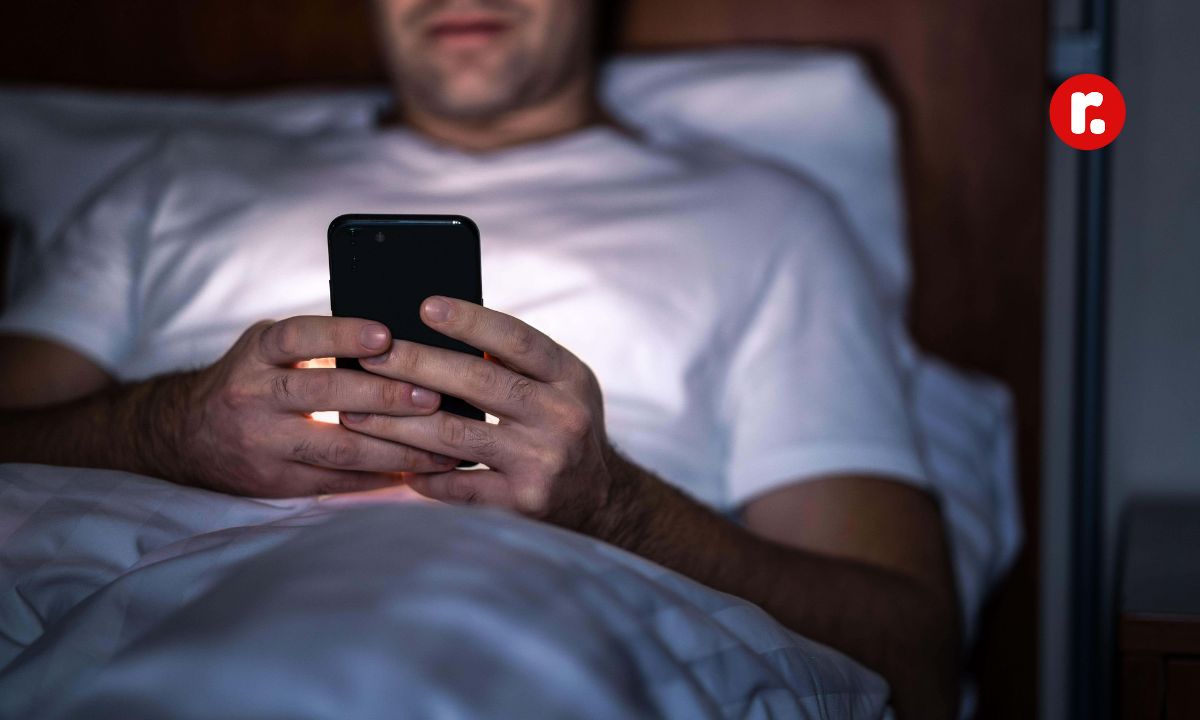A new study has found that spending more screen time in bed is linked to insomnia and sleep loss. The research, based on a survey of over 45,000 students in Norway, shows that for each extra hour of screen time, the risk of insomnia increases by 63%, and people lose about 24 minutes of sleep.
Screen Use and Sleep Problems
The study does not prove that screen time directly causes sleep problems. However, it does show a strong connection between the two. Experts suggest that reducing screen use before bedtime, relaxing, and maintaining a sleep routine may help improve sleep quality.
How the Study Was Conducted
Researchers analyzed survey data from students aged 18-28, collected in 2022. They examined the link between screen use in bed and sleep patterns. The study also looked at whether social media use affected sleep differently from other screen activities.
All Screen Activities Affect Sleep
Dr. Gunnhild Johnsen Hjetland from the Norwegian Institute of Public Health led the study, which was published in a Frontiers journal. He explained that all screen activities, including social media, TV, and gaming, had a similar impact on sleep.
“We found no major differences between social media and other screen activities. Screen use itself is the key factor in sleep disruption,” Dr. Hjetland said.
What the Survey Revealed
Participants were asked if they used digital media after going to bed. The options included:
- Watching films or TV
- Checking social media
- Browsing the internet
- Playing video games
Around 69% of those who used screens in bed engaged in social media as well as other screen activities. Participants also reported how often they struggled to fall or stay asleep, woke up too early, or felt tired. If they experienced these issues at least three nights a week for three months, they were classified as having insomnia.
Is Screen Time the Real Cause?
While the study found a link between screen use and sleep problems, it does not confirm that screens are the direct cause.
“This study cannot prove whether screen use causes insomnia or if people with insomnia use screens more,” Dr. Hjetland explained.
The researchers also mentioned that the data is based on self-reported experiences, which may not be entirely accurate.
Experts Warn About the Effects of Screens
Joshua Piper, a sleep expert at ResMed UK, said the study adds to growing evidence that electronic devices negatively affect sleep.
“Screens take away both sleep time and quality. Some people struggle to fall asleep, while others wake up during the night,” Piper told the BBC.
Even using night mode or reducing screen brightness may not fully prevent sleep issues, as scrolling and engaging with content keeps the brain active.
How to Improve Sleep Quality
Insomnia affects about one in three people in the UK. Many people struggle with sleep due to late-night phone use and constant scrolling.
Experts recommend the following tips to improve sleep:
- Avoid screens before bed: Stop using digital devices at least 30 minutes before sleeping.
- Stick to a sleep schedule: Go to bed and wake up at the same time every day.
- Relax before bedtime: Try reading, deep breathing, or taking a bath instead of forcing yourself to sleep.
- Avoid stimulants: Reduce caffeine, alcohol, and heavy meals before bed.
- Make your bedroom comfortable: A dark, quiet, and cool room helps improve sleep.
Natural Light Can Help
Sleep therapist Dr. Kat Lederle told the BBC that getting natural light, especially in the morning, helps regulate the body’s internal clock. She also suggested finding ways to unwind before bed by doing enjoyable but non-stimulating activities.
More Research Needed
The study’s authors recommend further research on screen use and sleep, including long-term studies and the effects of screen notifications during the night.
“More studies can help us understand how bedtime screen use affects sleep and guide better sleep recommendations for students and others,” the researchers concluded.








